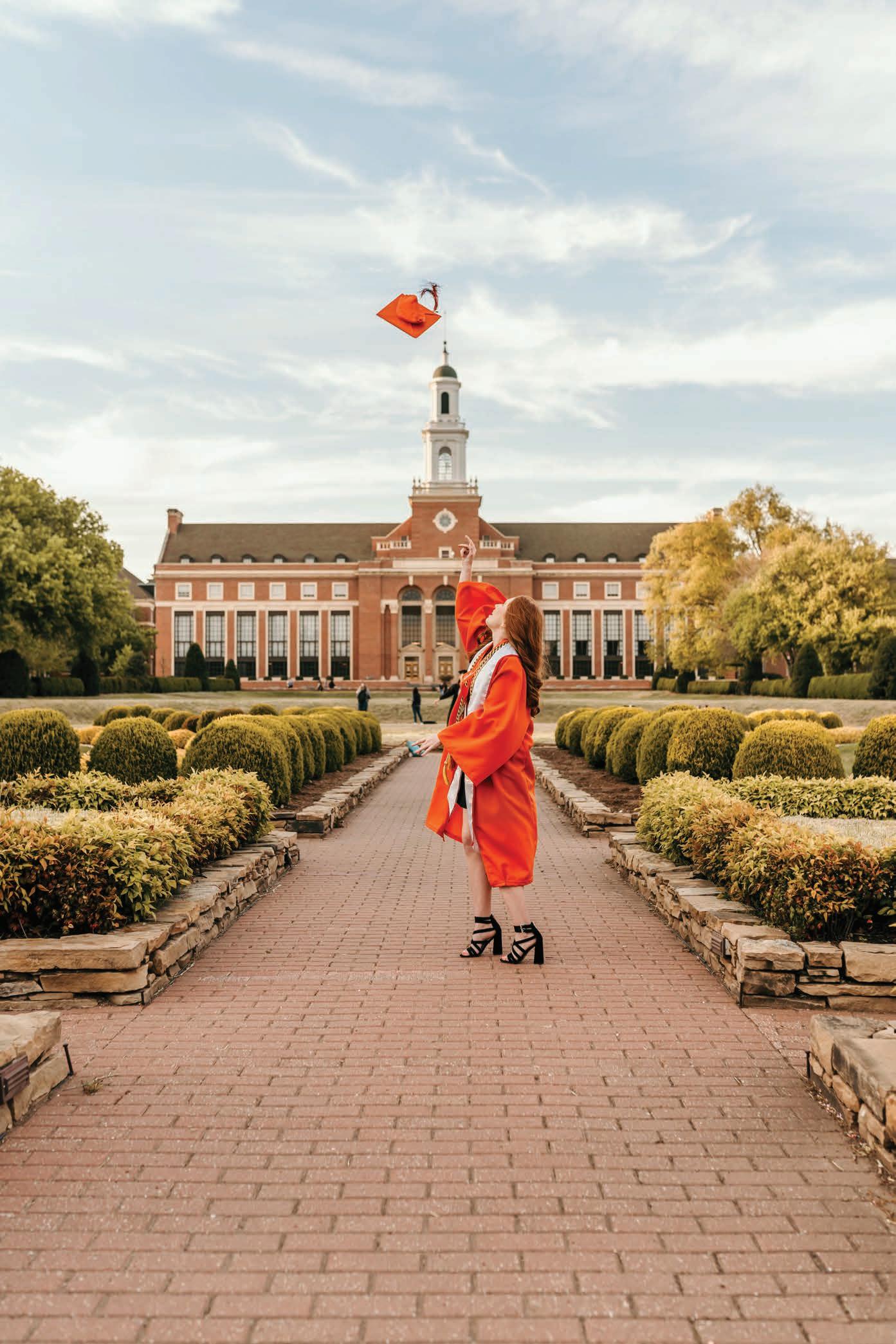RENEWING
RURAL OKLAHOMA Inaugural Rural Scholars Program kicks off in rural Oklahoma communities
olling hills, sweeping plains and mountainous ranges reach across rural Oklahoma. However, among beautiful landscapes, rural Oklahomans face multiple challenges, including broadband access issues, healthcare shortages and drought, said Tyson Ochsner, a Rural Renewal Initiative team leader and a plant and soil sciences professor. “We are the in process of creating a Rural Renewal Institute at Oklahoma State University,” Ochsner said. “When talking to other faculty members about the research needs and opportunities for OSU, addressing the challenges facing rural communities just emerged as a high-priority item.” Rural Renewal is a Tier 1 Research Initiative, which emphasizes the efforts for “Timely, Impactful, Engaged Research.” The Rural Renewal Initiative includes three parts: the Rural Scholars Program, a seed grant program, and the Rural Renewal Symposium and Prize. “The Rural Scholars program is one of our core activities because we really 64 | COWBOY JOURNAL
believe our students have the potential to make a difference,” Ochsner said. The inaugural Rural Scholars program included a 16-week course and 10-week “serviceship,” which is similar to an internship. The Spring 2020 class met once a week to discuss the history of Oklahoma communities as well as research theories and rural problems. The initial group of students worked in Harmon and Tillman counties in Summer 2020 to conduct research and provide community service. The scholars program is modeled after a study-abroad program, said Shane Robinson, a Rural Renewal Initiative team leader and agricultural education professor. “Before you go to a given country, you come together with the professor, and he or she explains customs of the country,” Robinson said. “We are laying the groundwork as a class and making sure everybody understands the program,” he added. When the students applied for the Rural Scholars program, they became a key part in the faculty’s research
project, Robinson said. As scholars, students collect data in the areas they are assigned, he said. Robinson said the students participated in community activities, as well. Whether helping in Habitat for Humanity workdays or library programs, they assisted in the communities in many ways, Robinson said. “I grew up in a very small town, and it is thriving,” said Audrey King, a Rural Scholar and agricultural education doctoral student. “However, I have gotten to the point where I have likely over educated myself to be able to go back there. “It makes me happy to think the work I do now, and in the future, could contribute to rural life in a positive way, even if I can’t physically be there,” King said. Ochsner said students in the 2020 program ranged from freshmen to doctoral students. King said the different ages and perspectives in a class made it interesting. “Often, the freshmen and sophomores are just so excited,” King said. “They are excited to be in school and


























